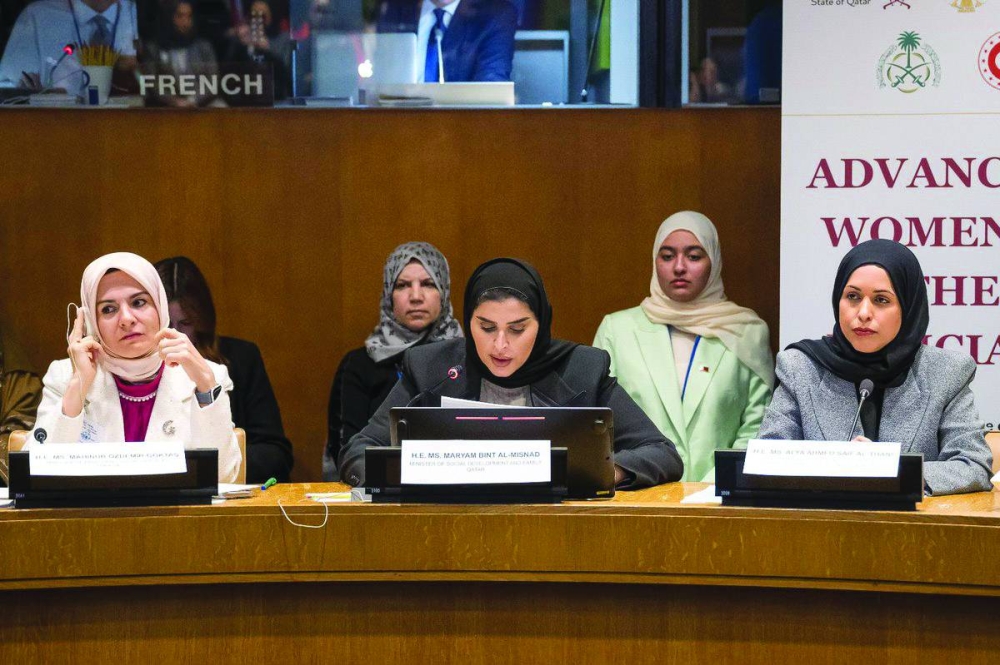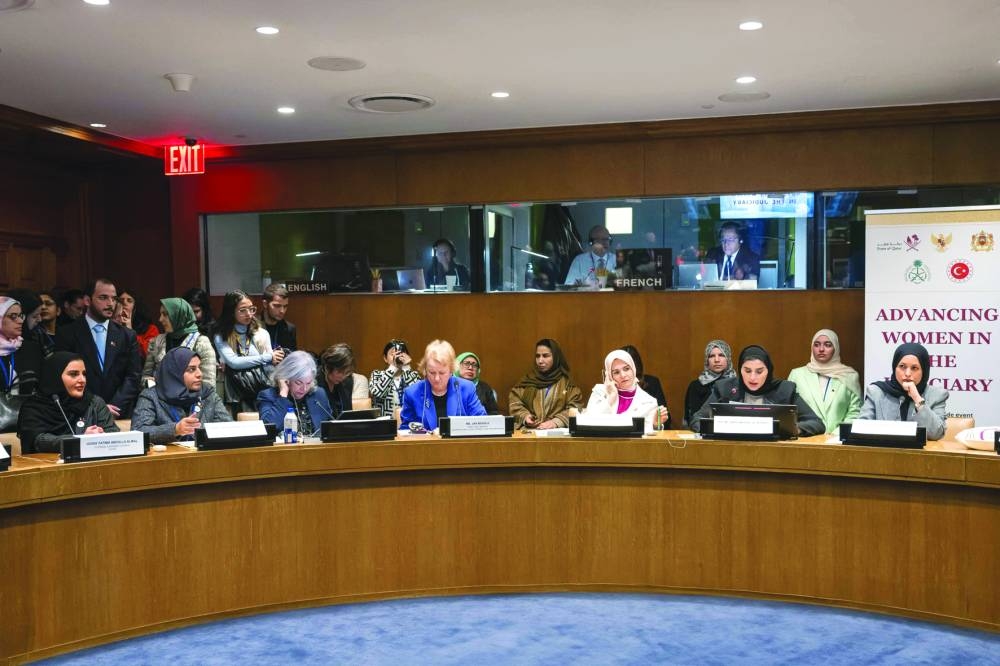Qatar has wrapped up its participation in the 68th Session of the Commission on the Status of Women (CSW68). HE Minister of Social Development and Family Maryam bint Ali bin Nasser al-Misnad headed Qatar's delegation to the session. The (CSW68) discussed the policies and strategies applied to accelerate achieving the principle of social gender equality and the empowerment of women and girls by addressing poverty and strengthening financing institutions with a gender perspective, in addition to reviewing the obstacles and challenges facing women on their path towards achieving their development at all levels.
The participation of Qatar emerged through bilateral meetings and high-level events discussed important issues, most importantly the support for Palestinian women, and urging the international community to take real and decisive measures on the ground to activate mechanisms of protection, empowerment and rehabilitation, primarily stopping the heinous crimes committed against women and children in the Gaza Strip.
Addressing the opening session which was themed 'Accelerating the achievement of gender equality and the empowerment of all women and girls by addressing poverty and strengthening institutions and financing with a gender perspective,' HE the Minister of Social Development and Family delivered a speech calling for supporting women in the field of work and protecting the family system.
In her speech, HE the Minister showcased the efforts of Qatar in adopting policies and measures aimed at equal opportunities for women in various fields, including education, social support, decision-making, investment and entrepreneurship, as well as achieving fairness in wages in the government sector. She said that Qatar has come a long way in this regard.
She explained that the legislation and policies adopted by the state aim to achieve a balance between work and family responsibilities, and have greatly contributed to empowering Qatari women and enhancing their role and participation not only in the workforce, but also as an active partner in the state's development.
Emphasizing Qatar's rejection of double standards in applying international law, she drew the attention of the participating delegations to the situation of Palestinian women, saying that the commission's meeting will have no meaning, if it keeps discussing some topics while Palestinian women have more pressing priorities.
The permanent delegation of Qatar to the United Nations, in partnership with the permanent delegations of Saudi Arabia, Morocco, Turkiye, and Indonesia had organized a high-level side event titled 'Advancing of Women in the Judiciary', on the margin of the 68th session of the Commission on the Status of Women, at the United Nations headquarters in New York.
HE Minister of Social Development and Family Maryam bint Ali bin Nasser al-Misnad, HE Minister of Family and Social Service of Turkiye Mahinur Ozdemir, and Executive Director of UN-Women Sima Bahous participated in the event.
HE Permanent Representative of the State of Qatar to the United Nations Sheikha Alya Ahmed bin Saif al-Thani, in a speech, referred to the United Nations General Assembly resolution entitled 'International Day of Women Judges', submitted by Qatar in 2021 and adopted by consensus, which calls on the international community to celebrate the International Day of Women Judges every year, and to support public education and awareness activities, to promote the full participation of women on an equal basis at all levels of the judiciary.
She praised the efforts of the Supreme Judicial Council in the State of Qatar, which encouraged the submission of the resolution, lauding its active role in developing strategic plans aimed at increasing women's participation in the judiciary.
For her part, HE al-Misnad affirmed Qatar's commitment to supporting women and enhancing their roles as one of the basic pillars of the 2030 Sustainable Development Plan. She said that as a result of tireless efforts to increase women's participation in the judiciary, the ratio of Qatari female judges has reached 13%, adding that work is underway to increase the percentage of female judges to 30% by 2030.
The event aimed to highlight the importance of women's representation in the judiciary, in addition to emphasizing that women's representation in the judiciary ensures the establishment of strong, more neutral and less susceptible to corruption justice systems.

The Qatar delegation attending the high-level side event titled 'Advancing of Women in the Judiciary', on the margin of the 68th session of the Commission on the Status of Women, at the United Nations headquarters in New York.

